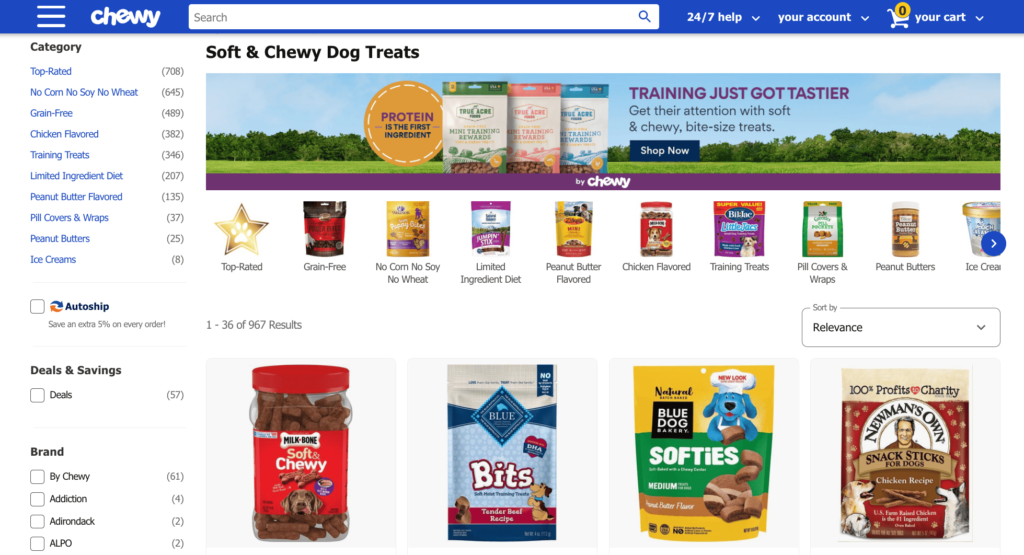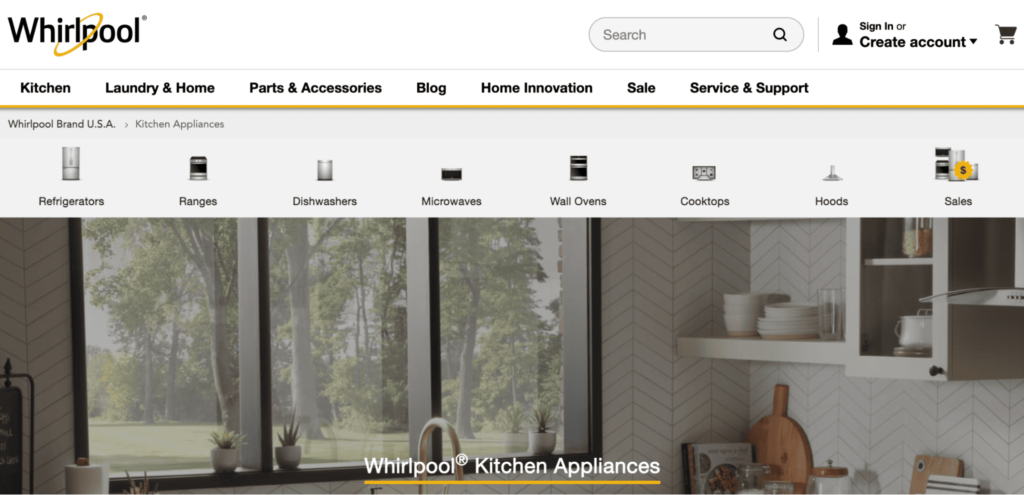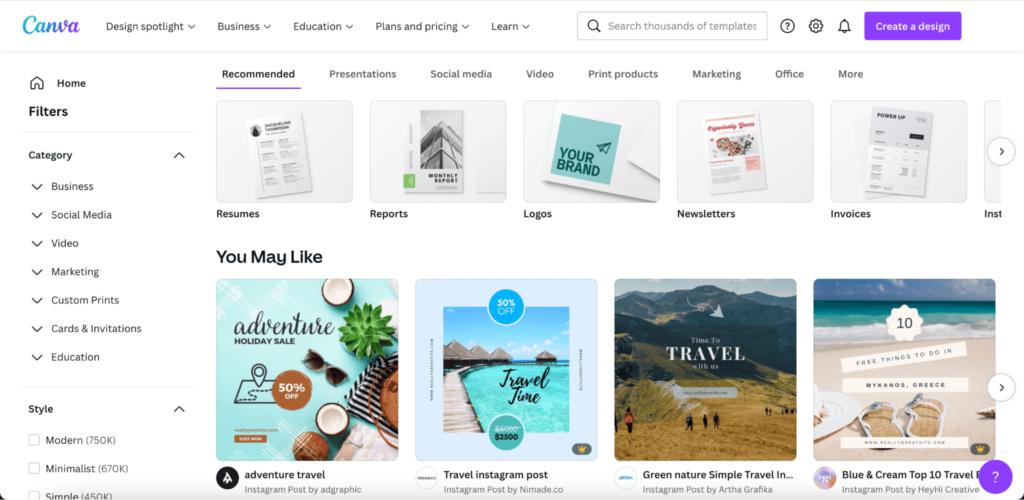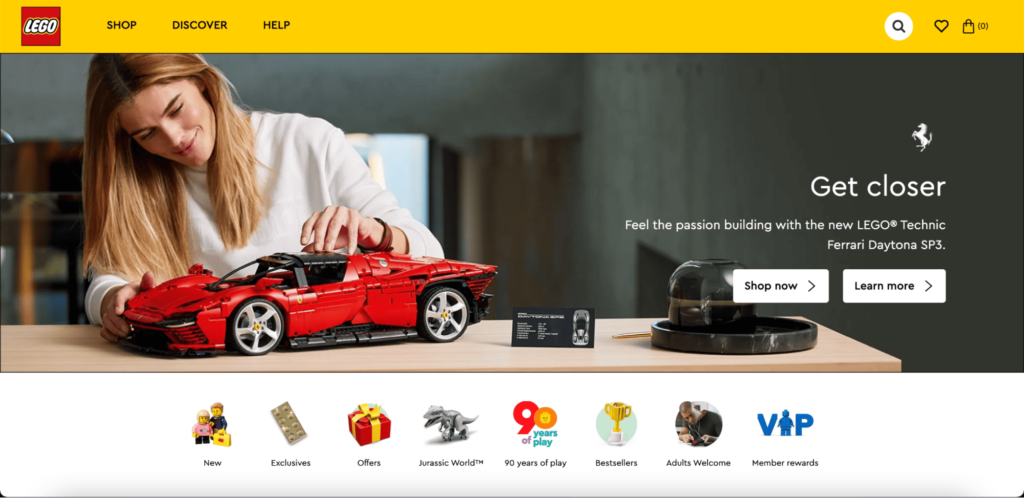Ecommerce continues to expand as more people are shopping online than ever before. It’s estimated that as many as 1 in 4 people regularly buy products online. If you’re an entrepreneur or ecommerce business owner, you’ll want to get ahead of which products and trends will become bestsellers and make you money online.
Whether you have an established business or you’re looking to get a business idea off the ground, we’ve got you covered with some strategies to help you work out what to sell online.
The Importance of Product Strategy for Ecommerce Businesses
Every product that your business sells needs to be catered to its target audience. The goal is to think like a customer so you can meet their needs. Entrepreneurs should prioritize buyer psychology so that every product offers a solution to a specific customer’s problem, therefore creating demand for that product.
Here are some tips on how to build an effective product strategy and determine what to sell online for your ecommerce business:
- Define your goals: Make a list of your key goals for the products you are selling and the sales you want to achieve. Instead of focusing too hard on revenue, think about making an impact, supporting a community, providing alternatives or helping others as a starting point and watch your sales grow.
- Consider your target audience: Who are your customers? What do they want? How are you offering them something different from mainstream or niche competitors?
- Evaluate long-term demand: The products you sell should involve a combination of market-led trends and long-term interest. Consider what will always be in demand with a certain group of people. Prioritize creating customer lifetime value and future-looking business longevity, even when you’re adapting to current ecommerce trends.
- Listen to people: Go where your audience is and observe what they are interested in, what they are talking about and what’s trending. Do your research online and go where your customers are. Read comments, forums and social media content that fits with your audience and products.
There are some other important things to think about to make your product search easier too. First of all, consider appealing to hobbyists of your particular product. People who already love what you are selling are likely to have the interest, income and awareness to become your customers first and foremost.
Research is also absolutely key. This ranges from performing keyword research to generating product ideas and listening to what potential customers are saying, through to researching high-value products and working out what makes sense for your industry, promotional strategy and pricing approach.
Sometimes, it makes sense to stick to what you know. Do you currently have any experience in the industry you’re looking to operate in? If you do, is your experience and what you are offering customers unique? Do you have contacts within the industry? Can you bring something a little different? Staying agile and ahead of the competition is an important part of your business.
Stand Out From Competitors: What to Sell Online?
Before deciding what to sell online, it’s important to understand the difference between niche and commodity products. Both product categories can bring in high-profit margins and generate consistent demand, it just depends on how well you’re targeting your audience.
Niche products: A niche product serves a specific purpose for a unique customer base. It can be exclusive, custom or appeal to a passionate customer group within the industry. Some examples include sports products, custom home decor and particular pet supplies.

An example of a niche brand is Chewy.com, which specializes in only selling a range of pet products and supplies. Chewy knows what they sell and who their customers are, delivering products that fit what they are looking for.
Commodity products: A commodity product is always in high demand. These products are considered essential for most people. Although there is a large market for commodity products, there is also a lot of competition. At times, it can be harder to earn credibility in your chosen industry. Some examples of commodities include home appliances, cleaning supplies, and essential goods for children.

An example of a commodity products business is home appliance manufacturer Whirlpool. Their products are always in demand, and there’s always a rotating market of new customers coming through, as well as staying loyal to the brand.
Benefits of Selling Niche Products
There are plenty of benefits to selling niche products, which is why they are so popular amongst business owners. While it may be tempting to sell commodities since they’re always in demand, the market is saturated with competitors in certain industries, so it can be hard to break through.
Here are some benefits to keep in mind when thinking about what niche products you could sell:
Less competition: Niche products allow you to pave your own way in an industry. There is abundantly less competition and plenty of opportunities to get creative about your business.
Easier to zone in on your audience: If you sell bicycles that are built for elite-level competition, you already have a loyal group of hobbyists that will create demand. This can be easier than just trying to undercut on price or features. Think about your audience and integrate them and their needs into every aspect of your business marketing strategy.
Cater your marketing to the niche and get specific: Take advantage of the specificity of your niche and make it clear to others who you are, what you do, what you offer customers and who you make products for.
Easier to get established: New businesses need to consider how they will break out and get noticed in the marketplace. Niche products make it much easier to gain traction fast, especially if your products have an existing community built around them.
How to Find Niche Products to Sell
When it comes to finding niche products to sell, you need to make sure you’re choosing the right niche and the right products within that niche. Here’s how you can make it easier to find niche products to sell:
Perform market research: Take the time to understand the problems in your niche and what products could solve them. Check out what’s on the market already, and how it’s priced, then speak to your target audience and understand the market you’re looking to operate in.

Think about solutions to common problems: A problem might sound basic, but if you can fix that common issue for an entire market sector, then you may well be onto a winning idea.
Consider high-profit industries: Industries that come with low costs but the ability to charge a premium, such as health and wellness, home improvement, tech, kids and pets, can be more lucrative than industries where profit margins are tight.

Get specific about your niche and target audience: What’s your mission and how will you appeal to your consumer base? Buyers are drawn to a story and a value system that sets a brand apart from its competitors.
Stay up to date with trends within your target demographic: This will help you to keep ahead of trends and understand what your audience is looking for. Perform research on social media sites like Instagram, Pinterest and TikTok, and keep an eye on what influencers in your sector are saying and are interested in.
Where Do You Find Products to Sell?
The next step is to work out where you can find products to sell within your chosen niche. There are some different options to find these, including:
Wholesale distributors: Wholesale distributors will have stock available and ready to ship to you or directly to your customers. It’s usually relatively straightforward and simple to get started, however you might run the risk of others selling the same types of products as you.
Arbitrage: Whether from a physical or online store, you can buy products and resell them on your website for a profit. Similar to wholesale distributors, a risk is that you and your competitors may be selling the same products.
Partner with artists, inventors and creators to sell handmade, unique products: While this can be less straightforward than working with a distributor, it does raise the likelihood of you selling a unique product and it helps to support your sector.
Dropshipping: This is a retail method that does not require a business to keep products in stock. When a buyer places an order, you send the details to the supplier who will deliver the item directly to your customer.
Creating your own: This is the best way to sell products that are unique to you. You get to control product quantity and design, but the process may be more time-consuming and expensive than with the other options above.
Niche Product Ideas in 2022
If you’re in need of some niche product ideas for 2022, then we’ve got some ideas that could help to spark some inspiration for your next business venture.
Fashion accessories: Accessories like belt buckles, boots and hats are all examples of smaller fashion items that can bring in a profit whilst being relatively easy to sell. If you can niche down further and target specific groups with your fashion accessories, you’re more likely to reach a community who will want to snap up what you are selling.
Beauty industry trends: The beauty industry is a billion-dollar industry, but it is still accessible for small brands and suppliers to break into. Selling items like false eyelashes, facial tools or LED face masks can be a great niche to get into. This is where knowing your audience and being ahead of trends can be big news, and big bucks, for your business.
Household cleaning products: Cleaning products are always in demand, especially post-pandemic. This is also an industry that’s increasingly trends-led. Sustainable, low-waste cleaning products, natural alternatives and easy hacks are all popular on social media, which in turn makes them popular with consumers.
Children’s accessories: Kids’ accessories, toys and clothes will always be in demand. If you can offer parents and children something a little different that makes your brand stand out in a crowded market, then you’re onto a winner.
Pet products: When you think of pets, cats and dogs probably come to mind, but there are so many other animals people keep as pets too, like lizards, spiders and chinchillas. You could consider selling pet food, trackers, toys and accessories.
Home accessories: Home accessory trends come and go, but things like kitchen (especially if they reflect current trends ones) and interior design items, such as LED lights, bulbs and neon signs, can be super-popular products to sell for ecommerce. The same goes for tech-based home items like robot vacuums and mops.
What to Sell Online: The Most Important Factor
If there’s one thing that’s key to working out what you should sell online, it’s research. There’s plenty of information out there on the internet that gives entrepreneurs insight and ideas about what to sell online.
The more research you gather overall, the easier it will become to zone in on a specific niche, get started with selling one or more products and prioritize your customers in everything you do.
Keep in mind that if your target audience doesn’t know who you are, you won’t be able to reach your goals as a business owner. Utilize the tools given to you through social media, competitor analysis and marketing trends. Taking these steps will help you to make a successful decision about what to sell online.








